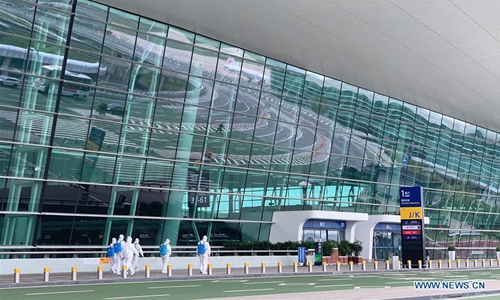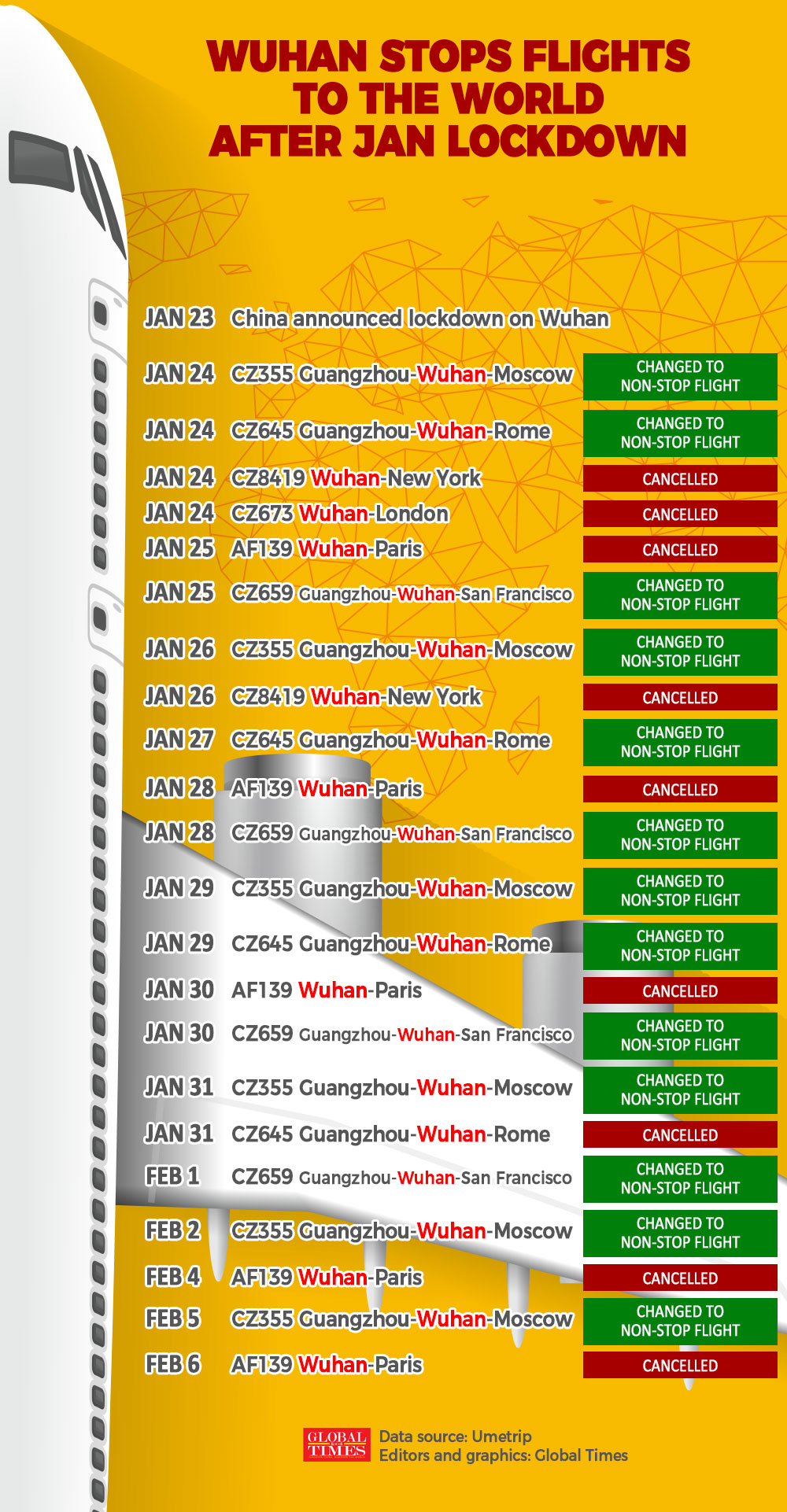Accusing China of deliberately exporting COVID-19 absurd
By Daniel A. Bell Source:Global Times Published: 2020/4/24 11:40:17

Photo:Xinhua
US President Donald Trump said at news briefing on April 18 that Beijing should face consequences if it was "knowingly responsible" for the coronavirus pandemic. Where do such allegations come from? Surprisingly, it's not just from the fertile imaginations of obscure conspiracy theorists or Hollywood screenwriters.
Such claims are also published in mainstream media organizations. Niall Ferguson is a leading historian and public intellectual. I had great respect for his scholarship. So it came as a big surprise when he wrote a column for the London-based Sunday Times on April 5 to call on China for answers to questions about coronavirus.
The Chinese local government did make some mistakes at the start of the coronavirus crisis and Ferguson asks some legitimate questions. But he asks a question that stood out from the rest: "After it became clear that there was a full-blown epidemic spreading from Wuhan to the rest of Hubei province, why did you cut off travel from Hubei to the rest of China — on January 23 — but not from Hubei to the rest of the world?"
The force of his question rests on the factual assumption that China allowed flights from Wuhan to the rest of the world but not to the rest of China after January 23. But is it a fact?
To support the allegation, Ferguson added: "January is always a peak month for travel from China to Europe and America because of the lunar new year holiday. As far as I can tell from the available records, however, regular direct flights from Wuhan continued to run to London, Paris, Rome, New York and San Francisco throughout January and in some cases into February."
I was surprised by the allegation that China allowed regular direct flights from Wuhan to cities in the US and Europe after it cut flights from Wuhan to the rest of China.
Why does it matter? If the Chinese government did allow regular flights from Wuhan to Western countries after January 23, it suggests the Chinese government deliberately allowed, if not encouraged, the spread of the virus to five cities in Western countries after it tried to control it in China.
Not surprisingly, Ferguson's article generated huge interest around the world. In the US, it was tweeted by both prominent liberals and conservatives. Canada's leading newspaper the Globe and Mail published a shortened version of the comment. Websites from the Arab world and Africa publicized Ferguson's allegation about allowing regular flights out of Wuhan to the rest of the world after they had been cut off inside China.
Puzzled, I decided to ask Ferguson himself if the allegation is true (I'm motivated by personal curiosity and the concern for truth, and I'm not acting with or on behalf of anybody else). So I sent him a polite email, asking if he has any evidence to support the claim that regular flights continued from Wuhan to the rest of the world continued after January 23.
Ferguson replied: "I can assure you I wouldn't write a sentence like that if I had not researched it rather thoroughly." To support his claim, he sent me several pieces of evidence.
But the sources he sent did not support the allegation that there were regular commercial flights from Wuhan to the US and Europe after January 23 and "in some cases into February." Ferguson sent me a link to this New York Times story, "430,000 People Have Traveled From China to US Since Coronavirus Surfaced" published on April 4 and updated on April 15.
Surprisingly, this article includes one sentence that suggests the opposite of what Ferguson claims: "Scott Liu, 56, a Wuhan native and a textile importer who lives in New York, caught the last commercial flight, on Jan. 22."
Ferguson also sent a link of a Nikkei article, "China's inaction for 3 days in January at root of pandemic" published on March 19. This article mentions that group travel continued out of China until January 27 but it does not say anything about planes leaving from Wuhan to cities outside of China after January 23.
Professor Ferguson sent me two Flightstats records of flights from Wuhan in January or February. The Flightstat records seem to show that 31 flights left from Wuhan to cities in the US and Europe on or after January 23. But those same records show that the "est. runway departure" and "actual runway departure" in Wuhan is blank for all the flights that left to other cities after one that left Wuhan for Paris at 11:26 am on January 23. And 26 out of 31 of the flights listed after January 23 are in red color.
So I did a search on a Chinese language application called Umetrip, provided by the website for the Civil Aviation Administration of China. I checked all the flights listed on the spreadsheet Professor Ferguson sent me. It turns out that none of the flights that supposedly left from Wuhan after 11:26 am on January 23 actually left from Wuhan. The flights listed as red on Ferguson's spreadsheet were canceled. And some listed as black that left from Guangzhou and in normal times would do a stopover in Wuhan on the way to San Francisco had the stopover cancelled. The app shows the actual flight paths of those flights as direct from Guangzhou to the US city.
In short, the "available records" provided by Professor Ferguson do not show that "regular direct flights from Wuhan continued to run to London, Paris, Rome, New York and San Francisco throughout January and in some cases into February." The records show that flights out of Wuhan to the rest of the world stopped around mid-day on January 23, the same day China stopped flights from Wuhan to the rest of China.
In subsequent communication, however, Professor Ferguson added a new point not mentioned in his original article. He claimed that flights from Wuhan landed at Moscow on January 26, 29, 31, February 2, and February 5.
In fact, there is no such evidence.
I checked those flights to Moscow again and it's the same situation as the other flights listed in black after January 23: The five flights that were supposed to leave from Wuhan to Moscow actually left from Guangzhou. I also found out that distance flied by those five flights to Moscow was 7,010 kilometers respectively. But the flight from Wuhan to Moscow on January 19 covered 6,429 kilometers. So it's quite clear those flights left from Guangzhou to Moscow, not from Wuhan.
Ferguson continues to support his allegation even after I pointed out that the evidence he provided does not support it. That's worrisome. Conspiracy theorizing of this sort deflects attention from what actually went wrong. And it fuels the demonization of the Chinese political system at the same time we need collaboration between China and the rest of the world to deal with an urgent global pandemic.
The author is dean of the school of political science and public administration at Shandong University and co-author (with Wang Pei) of Just Hierarchy: Why Social Hierarchies Matter in China and the Rest of the World (Princeton, 2020). opinion@globaltimes.com.cn

Posted in: VIEWPOINT